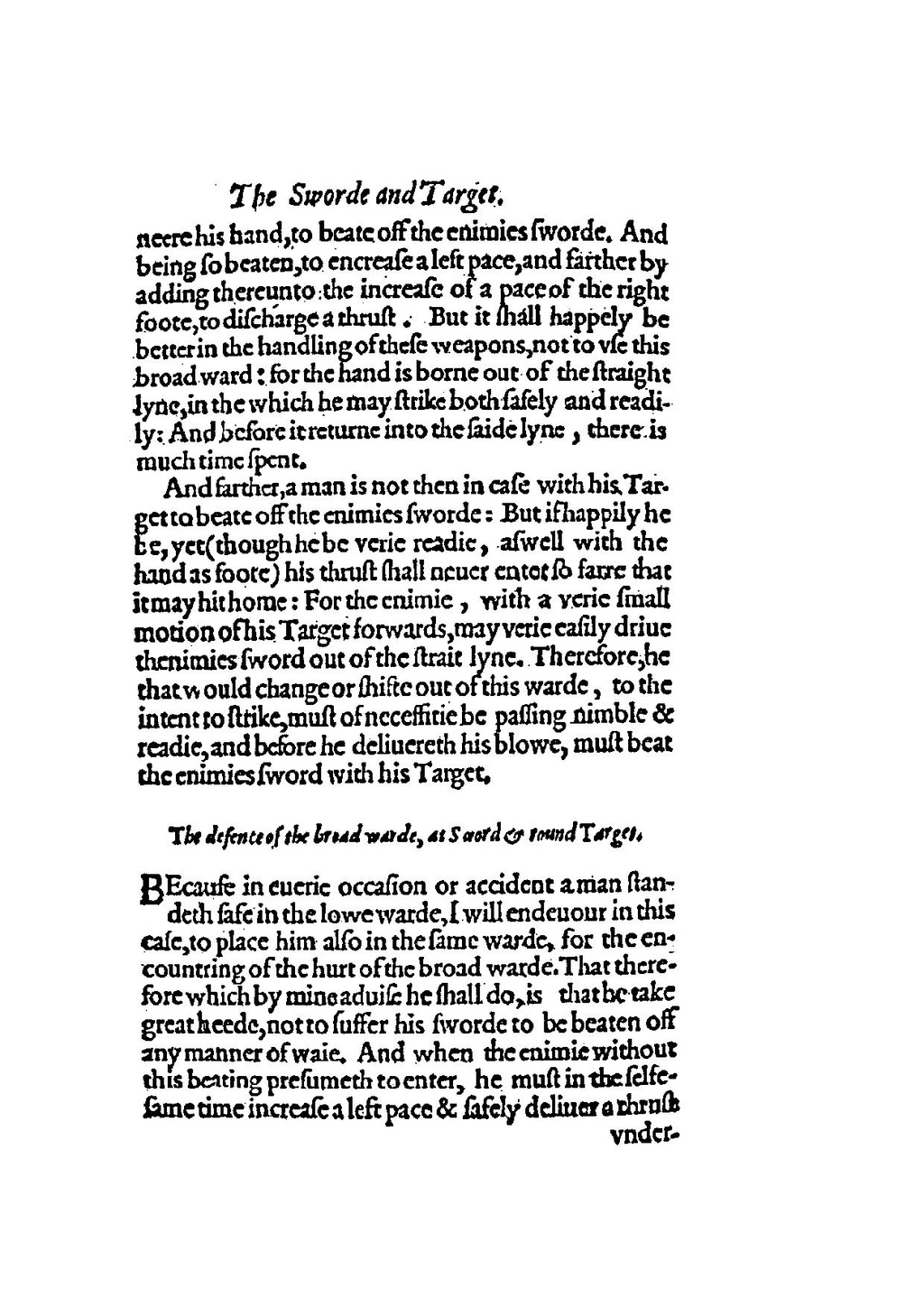neere his hand, to beate off the enimies sworde. And being so beaten, to encrease a left pace, and farther by adding thereunto the increase of a pace of the right foote, to discharge a thrust. But it shall happely be better in the handling of these weapons, not to vse this broad ward: for the hand is borne out of the straight lyne, in the which he may strike both safely and readily: And before it returne into the saide lyne, there is much time spent.
And farther, a man is not then in case with his Target to beate off the enimies sworde: But if happily he be, yet (though he be verie readie, aswell with the hand as foote) his thrust shall neuer enter so farre that itmay hit home: For the enimie, with a verie small motion of his Target forwards, may verie easily driue thenimies sword out of the strait lyne. Therefore, he that would change or shifte out of this warde, to the intent to strike, must of necessitie be passing nimble & readie, and before he deliuereth his blowe, must beat the enimies sword with his Target.
The defence of the broad warde, at Sword & round Target.
BEcause in euerie occasion or accident a man standeth safe in the lowe warde, I will endeuour in this case, to place him also in the same warde, for the encountring of the hurt of the broad warde. That therefore which by mine aduise he shall do, is, that he take great heede, not to suffer his sworde to be beaten off any manner of waie. And when the enimie without this beating presumeth to enter, he must in the selfesame time increase a left pace & safely deliuer a thrust
vnder-

